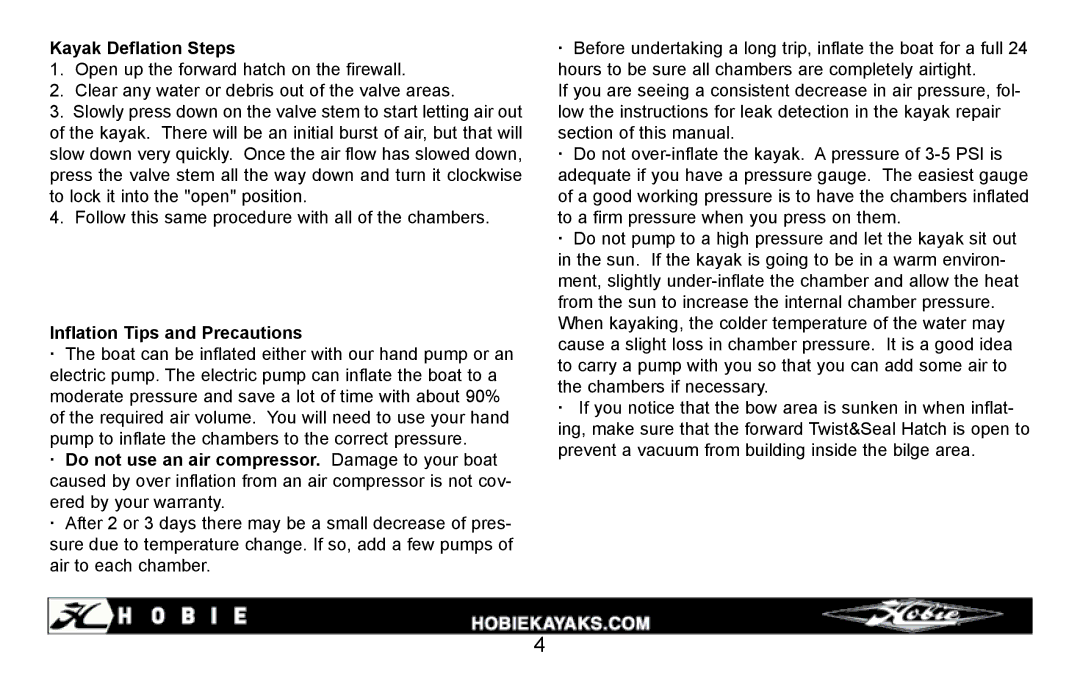Kayak Deflation Steps
1.Open up the forward hatch on the firewall.
2.Clear any water or debris out of the valve areas.
3.Slowly press down on the valve stem to start letting air out of the kayak. There will be an initial burst of air, but that will slow down very quickly. Once the air flow has slowed down, press the valve stem all the way down and turn it clockwise to lock it into the "open" position.
4.Follow this same procedure with all of the chambers.
Inflation Tips and Precautions
·The boat can be inflated either with our hand pump or an electric pump. The electric pump can inflate the boat to a moderate pressure and save a lot of time with about 90% of the required air volume. You will need to use your hand pump to inflate the chambers to the correct pressure.
·Do not use an air compressor. Damage to your boat caused by over inflation from an air compressor is not cov- ered by your warranty.
·After 2 or 3 days there may be a small decrease of pres- sure due to temperature change. If so, add a few pumps of air to each chamber.
·Before undertaking a long trip, inflate the boat for a full 24 hours to be sure all chambers are completely airtight.
If you are seeing a consistent decrease in air pressure, fol- low the instructions for leak detection in the kayak repair section of this manual.
·Do not
·Do not pump to a high pressure and let the kayak sit out in the sun. If the kayak is going to be in a warm environ- ment, slightly
·If you notice that the bow area is sunken in when inflat- ing, make sure that the forward Twist&Seal Hatch is open to prevent a vacuum from building inside the bilge area.
4
